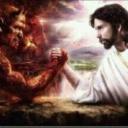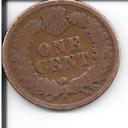Yahoo Answers is shutting down on May 4th, 2021 (Eastern Time) and beginning April 20th, 2021 (Eastern Time) the Yahoo Answers website will be in read-only mode. There will be no changes to other Yahoo properties or services, or your Yahoo account. You can find more information about the Yahoo Answers shutdown and how to download your data on this help page.
Trending News
Christians: Please Explain Matthew 12:23?
And all the people were amazed, and said, Is not this the son of David?
Why did they ask this question? Only serious answers. Please no rude comments TY.
7 Answers
- 8 years agoFavorite Answer
Is not this the Son of David? - That is, Is not this the promised "descendant" of David, the Messiah? They were acquainted with the prophecy in Isaiah 35:5, "Then the eyes of the blind shall be opened, and the ears of the deaf shall be unstopped," and they inferred that he must be the promised Messiah who was able to do this. This inference was drawn by the common people, and not by the proud and haughty Pharisees. It is not uncommon that people of plain common sense, though unlearned, see the true meaning of the Bible, while those who are filled with pride and science, falsely so called, are blinded.
- lorddogLv 58 years ago
Isaiah 11 Then a shoot will spring from the stem of Jesse,
And a branch from his roots will bear fruit.... much much more on the Messiah as the branch.
Jesse was David's father and his linage goes directly to Jesus. so Jesus is the son of David in essence.
read all of Isaiah 11 to get a great picture of the kingdom of Christ or church of Christ. it is symbolic language. Also, speaks about how not just the Jews would be apart of Christ's kingdom but the Gentiles also would come from all languages and all nations.
- Anonymous8 years ago
"Could this be the Son of David?" In other words, "Is not this the promised Messiah, David's Descendant (cf. II Sam. 7:14-16) who has come to rule over us and bring healing to our nation?"
"Why did they ask this question?"
While the people were asking this question, the Pharisees were concluding that Jesus' power must be attributed to Beelzebub, the prince of demons.
Knowing what the Pharisees were thinking, Jesus defended His authority. This was one of the few times He did so, but the issue was clear. Jesus gave three arguments to answer the claim that He was working by Satan's power. First, He said if He were casting out a demon by Satan's power, then Satan would be working against himself (vv. 25-26). Why would Satan let Jesus cast out a demon and free a man who was already under his control? To do so would divide Satan's kingdom and bring it to destruction.
Second, Jesus asked them about contemporary Jewish exorcists, those who were able to cast out demons by the power of God (v. 27). The apostles had been given that authority (10:1) and others were thought to possess such power. Jesus was saying in essence, "If you believe exorcists work by the power of God in casting out demons, why do you not think I have that same divine power?"
Third, by driving out demons, He was proving He was greater than Satan. He was able to go into Satan's realm (the strong man's house), the demonic world, and come away with the spoils of victory (12:29). Since He could o this, He was able to institute the kingdom of God among them (v. 28). If He were driving out demons by Satan's power, He certainly could not be offering the people God's kingdom. That would be contradictory. The fact that He was coming to establish the kingdom clearly showed that He worked by the power of the Spirit of God, not by Satan's power.
- david.truthLv 48 years ago
Because it was stated in the prophecy that the promised messiah would come through the seed of King David.
- How do you think about the answers? You can sign in to vote the answer.
- My cents worthLv 68 years ago
I thought it was because they did not see that He was the Son of God. But rather they tried to reason his lineage in the flesh and could not understand an earthly man to having such power.
Is there more?
- Anonymous8 years ago
They couldn't believe that someone they knew from their own hometown could be the Messiah, someone who had grown up among them. He grew up as an ordinary lad, and they thought it would be something else, so this gave them reason to doubt. Doubters will always come up with some reason, true or false or twisted.
Isaiah 53:1 says he would grow up as a root out of a dry ground, Isa. 11:1-5 tells more about his upbringing and what he became.








